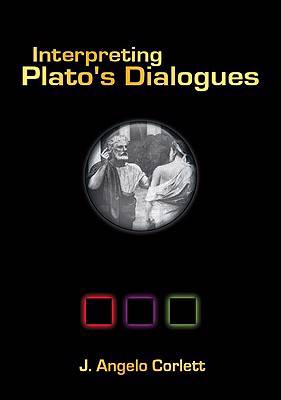
En raison d'une grêve chez bpost, votre commande pourrait être retardée. Vous avez besoin d’un livre rapidement ? Nos magasins vous accueillent à bras ouverts !
- Retrait gratuit dans votre magasin Club
- 7.000.000 titres dans notre catalogue
- Payer en toute sécurité
- Toujours un magasin près de chez vous
En raison de la grêve chez bpost, votre commande pourrait être retardée. Vous avez besoin d’un livre rapidement ? Nos magasins vous accueillent à bras ouverts !
- Retrait gratuit dans votre magasin Club
- 7.000.0000 titres dans notre catalogue
- Payer en toute sécurité
- Toujours un magasin près de chez vous
Récompenses
Description
Interpreting Plato's Dialogues introduces readers to some key problems in understanding Plato's writings, and explores in-depth and critically the various ways of approaching Plato. The problem of how to interpret Plato's dialogues dates back to Plato's Academy, and Plato's interpreters ought not to forego this important discussion. For how one approaches texts will inevitably influence how one interprets their contents. This is especially true of Plato's writings, as they are, with few exceptions, dialogues. For the sake of historical accuracy, then, it is crucial that the most plausible interpretation of Plato's works is articulated and well defended. And this is precisely what this book provides: an articulation and critical evaluation of the various ways to approach Plato's dialogues, along with the articulation and defense of a plausible new way to interpret Plato. This new way of approaching Plato neither sees Plato's words as doctrines according to which the dialogues are to be interpreted, nor does it reduce Plato's dialogues to dramatic literature. primarily by Plato's respect for his teacher, Socrates, and the manner in which Socrates engaged others in philosophical discourse. It places the focus of philosophical investigation of Plato's dialogues on the content of the dialogues themselves, and on the Socratic way of doing philosophy. This book contains a comprehensive bibliography of philosophical sources on the interpretation of Plato's corpus of writings, as well as some important works in the field of classical studies and philology. Interpreting Plato's Dialogues provides both an analytical, scholarly, and thorough treatment of what is perhaps the most long-standing problem in Plato studies. The book will serve well as a companion text to Plato's dialogues and is of special interest to philosophers, classicists, and philologists.
Spécifications
Parties prenantes
- Auteur(s) :
- Editeur:
Contenu
- Nombre de pages :
- 137
- Langue:
- Anglais
Caractéristiques
- EAN:
- 9781930972025
- Date de parution :
- 01-12-05
- Format:
- Livre relié
- Format numérique:
- Ongenaaid / garenloos gebonden
- Dimensions :
- 173 mm x 240 mm
- Poids :
- 471 g

Les avis
Nous publions uniquement les avis qui respectent les conditions requises. Consultez nos conditions pour les avis.








